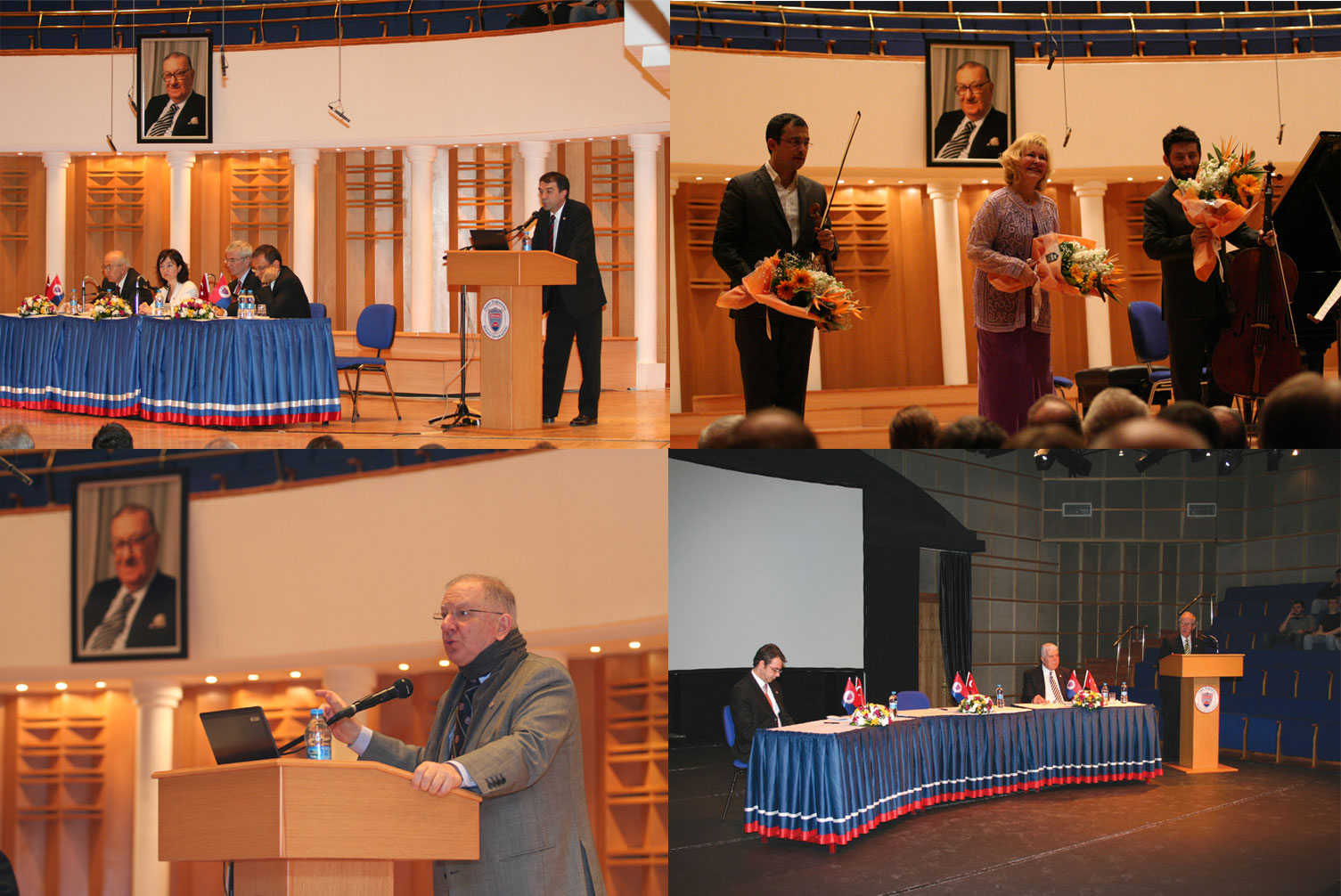Bilkent Day Celebrated on April 3
Photographs by: Aydın Ramazanoğlu

Chairman of the Board of Trustees Prof. Ali Doğramacı and Rector Prof. Abdullah Atalar met with faculty, staff and students on Tuesday, April 3 at the Bilkent Concert Hall. Prof. Doğramacı announced that beginning this year, April 3 -- the birthday of the university's beloved founder Hocabey -- will be celebrated as Bilkent Day. Each year, current and future projects and issues of Bilkent University will be discussed in an open meeting to promote the sharing of ideas. Prior to this year, similar meetings had been held in 2001, 2008 and 2010.
The meeting began with Prof. Doğramacı's opening remarks addressing the question, "Why does Bilkent exist?" He noted that before Bilkent came into existence, Turkey had had only one model of higher education, the state university. The new university founded by Prof. İhsan Doğramacı offered an alternative organization for higher education in the country -- one that was nonprofit and more independent.
Prof. Doğramacı also referred to the international Statement on Academic Freedom, endorsed by Bilkent's Senate and Board of Trustees in 2005. The statement defines academic freedom as "the freedom to conduct research, teach, speak, and publish, subject to the norms and standards of scholarly inquiry, without interference or penalty, wherever the search for truth and understanding may lead."
Prof. Doğramacı concluded his talk by stating, "Bilkent Day will be celebrated each April 3, to discuss where we are, where we are going, and what lies ahead."